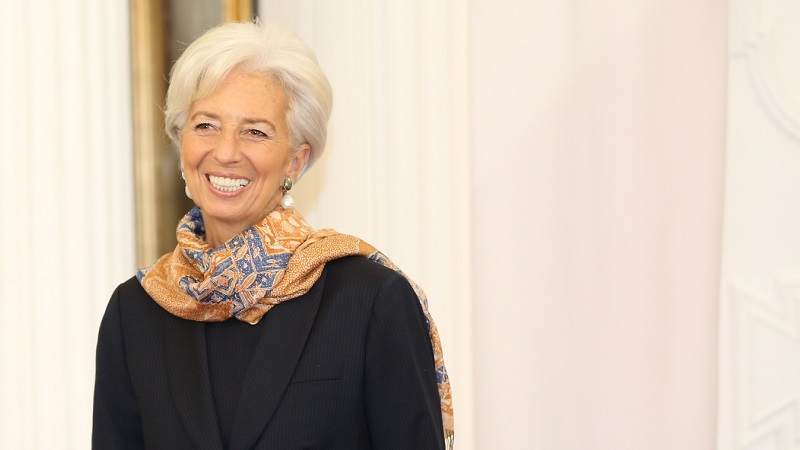Monday 13 July
– Trading statement from gold miner Centamin
– In the US, quarterly results from PepsiCo
Tuesday 14 July
– JP Morgan Chase, Citigroup and Wells Fargo quarterly figures
AJ Bell investment director Russ Mould said US banks’ numbers will be important not just for earnings momentum in the broader US equity market but also the UK banks.
He explained: “This is because the US banks took huge provisions against expected loan losses with their first-quarter numbers, thanks to the pandemic and the recession that looks set to follow it, and the big five FTSE 100 banks did the same. The read-through is not exact, since RBS, Lloyds and Standard Chartered do not have US exposure, although HSBC and Barclays do, but the big four in the US could still give some inkling for what is to come from the FTSE 100 lenders’ own Q2 numbers, where Barclays will lead the way on 29 July.”
– Halma full-year results
Mould noted that of all FTSE 100 firms, life-saving technology companies group Halma is the only one yet to make a comment about its dividend for 2020 as its first-half figures were released last November.
“The analysts’ consensus forecast is for a full-year pay-out of 16.71p per share, an increase of 6% on the distribution for the year to March 2019,” said Mould. “If this forecast is met, that would be Halma’s 41st consecutive increase in its annual dividend of 5% or more. It would also keep the firm in the elite list of just 14 FTSE 100 firms that have managed to increase their annual dividend each and every year for at least a decade.”
– Monthly UK industrial, manufacturing and construction output
– German Zew Indicator of Economic Sentiment survey
– German and US CPI
– Polar Capital Technology Trust final results
– Mercia Asset Management final results
Wednesday 15 July
– UK CPI inflation (June)
Canaccord Genuity Wealth Management head of managed portfolio service Jordan Sriharan noted CPI in May dropped to 0.5% from 0.8% in April and had been as high as 1.7% in February. “Weaker fuel prices have been a key driver as the oil price has collapsed in recent months, but domestic price pressure was already falling before the pandemic.”
He added: “The chancellor’s economic statement last week was aimed at encouraging spending but the cuts to VAT will only add to the slowdown in inflation, a trend witnessed in 2009 when the government lowered VAT in the aftermath of the financial crisis.”
– In the US, Goldman Sachs and Morgan Stanley quarterly figures
– Full-year results from Dixons Carphone
– Trading statements from Burberry and retailer Dunelm
– Monetary policy decision from the Bank of Japan
Thursday 16 July
– UK unemployment and wage growth data
Mould said: “We have had some good news as supermarkets and food retailers and delivery firms in particular have been scrambling to hire people to help them meet demand and keep the nation fed and watered during the lockdown. In addition, it is to be hoped that chancellor Rishi Sunak’s furlough programme staved off some redundancies and helped firms with their wage bills.
“However, we have seen a number of companies, public and private, including SSP, Easyjet, Rolls-Royce, Accenture, Casual Dining Group, announce staff cuts of late. They will not feed into this set of figures, but this latest batch could give some indication of what the trend may be.”
– European Central Bank monetary policy meeting
Sriharan said Christine Lagarde (pictured) has had a rocky start as ECB chair. Her first meeting was met with cynicism from investors but she followed up with bolder actions in her second meeting which was received favourably.
“It is unlikely that the bank will engage in further stimulus at this week’s meeting; it is more likely to focus on the more optimistic data points while noting caution. For now, any change to policy is unlikely to be communicated until September’s meeting at the earliest but economists broadly expect more action in December. Expect Lagarde to be questioned around a potential EU recovery fund, a highly publicised strategy to pool together debt of euro-member countries.”
– US retail sales (June)
Sriharan noted US retail sales achieved an all-time high of +17.7% in May and at $485bn in receipts, it was the biggest gain in data since records began in 1992. Since then, US consumers and businesses have been buffeted around by fast-changing rules around lockdown, he said, which are determined by each state rather than the federal government.
“While June is expected to remain in positive territory at +5.6%, forecasting with any accuracy is getting harder. As we head into the summer months it will be difficult to extrapolate what are seasonal trends for spending. Both investors and politicians – at least Republicans – will want to see retail sales remain on an upward trend.”
– Bank of America April-to-June figures
– Chinese monthly industrial production, fixed asset investment and retail sales growth numbers
– US weekly unemployment claims
– US Wells Fargo/NAHB house builders sentiment survey
– SSE trading announcement
– In Asia, quarterly results from TSMC
– In Europe, quarterly results from Sandvik and Publicis
– In the US, quarterly results from Microsoft, Johnson & Johnson, Abbott Laboratories, AMD and Netflix
Friday 17 July
– Trading statement from Rio Tinto
– UK retail sales figures
– GFK Consumer Confidence figures
– US housing permits and new housing starts data
– In Europe, quarterly results from Finnish lift and escalator maker Kone, truck firm Volvo and chewing tobacco maker Swedish Match
– In the US, quarterly results from Honeywell










